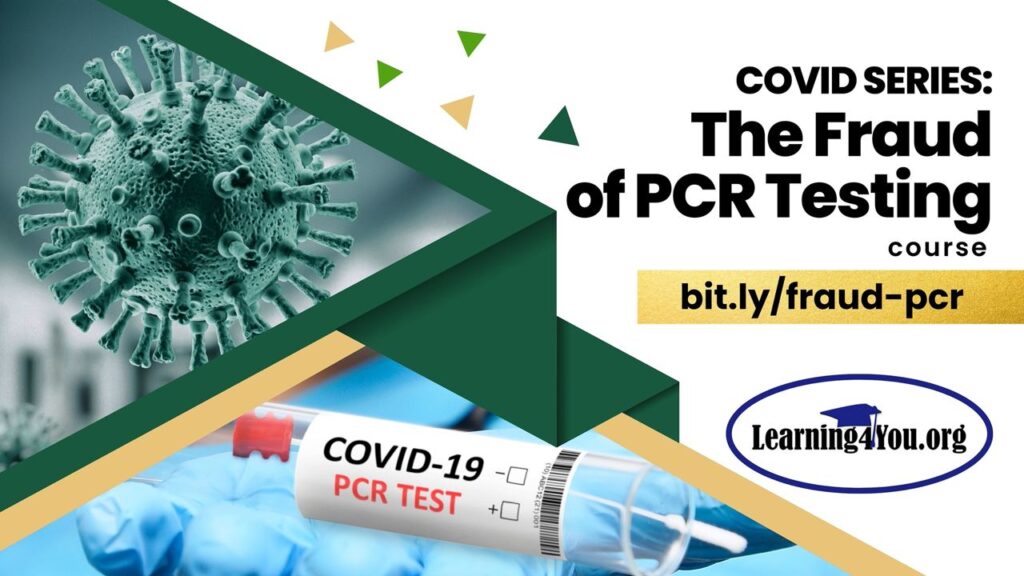PCR stands for polymerase chain reaction. PCR testing was developed by Kary Mullis, PhD to study DNA genetic material. This was the lab technique created by Kary Mullis for which he was awarded the Noble Prize in chemistry in 1993. Unfortunately, he passed away in Fall, 2019 at the age of 74. PCR was, and still is, only meant to be a manufacturing technique; it was never intended to be used as a clinical, diagnostic tool to detect viruses.
To study RNA genetic sequences, such as the coronaviruses, the reverse transcriptase enzyme must be used to transcribe RNA back into DNA before the amplification process is applied. The tiny trace of genetic material must be amplified (multiplied) until there is enough material to be identified. The doubling of genetic material reaches a number where it can be detected. This value is called the cyclic threshold (Ct). When a sample has a Ct value of 37 or greater, there is a billion times more genetic material than from the place it started…but no active, intact virus. [1 Video, Length: 38 min, Downloadable Material, Access to Forums]
In this module, you will learn:
- The method used to collect the testing sample from the back of the throat
- How PCR testing works and why it is was only intended to be used as a laboratory technique
- Why PCR testing can result in a large number of false positive results
- Why a positive test does not identify the pathogen actually causing the infection
- What the cycle threshold is (Ct) and how it is determined
- Why the Ct value is key to identifying a truly infected person
- The many factors that can adversely effect the accuracy of the Ct value
- Why having a (+) PCR test with a high Ct value means you are not contagious
- Why reporting the number of “cases” is leading to unnecessary destruction of the economy and personal lives
- The truth about symptomatic carriers
- Why “no viable virus” means “no infectivity”
- The truth about genetic databases
- How to answer this question: Should I get tested?


